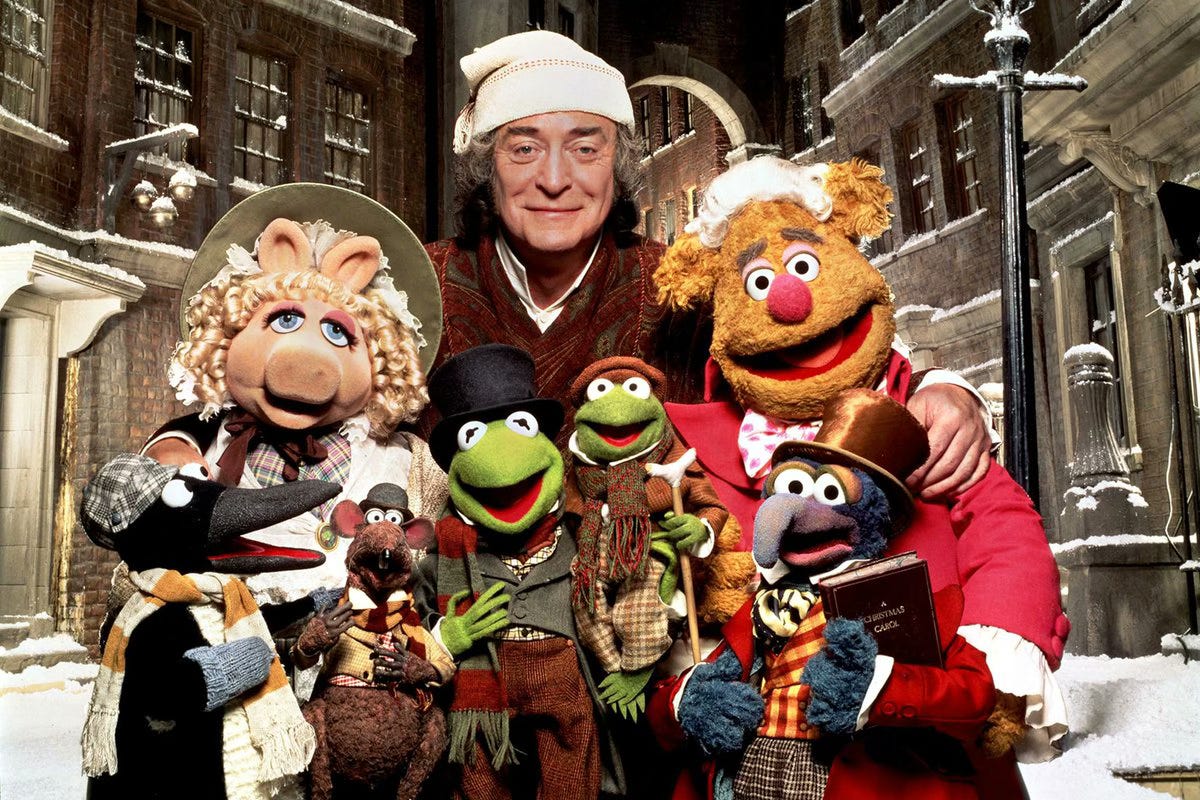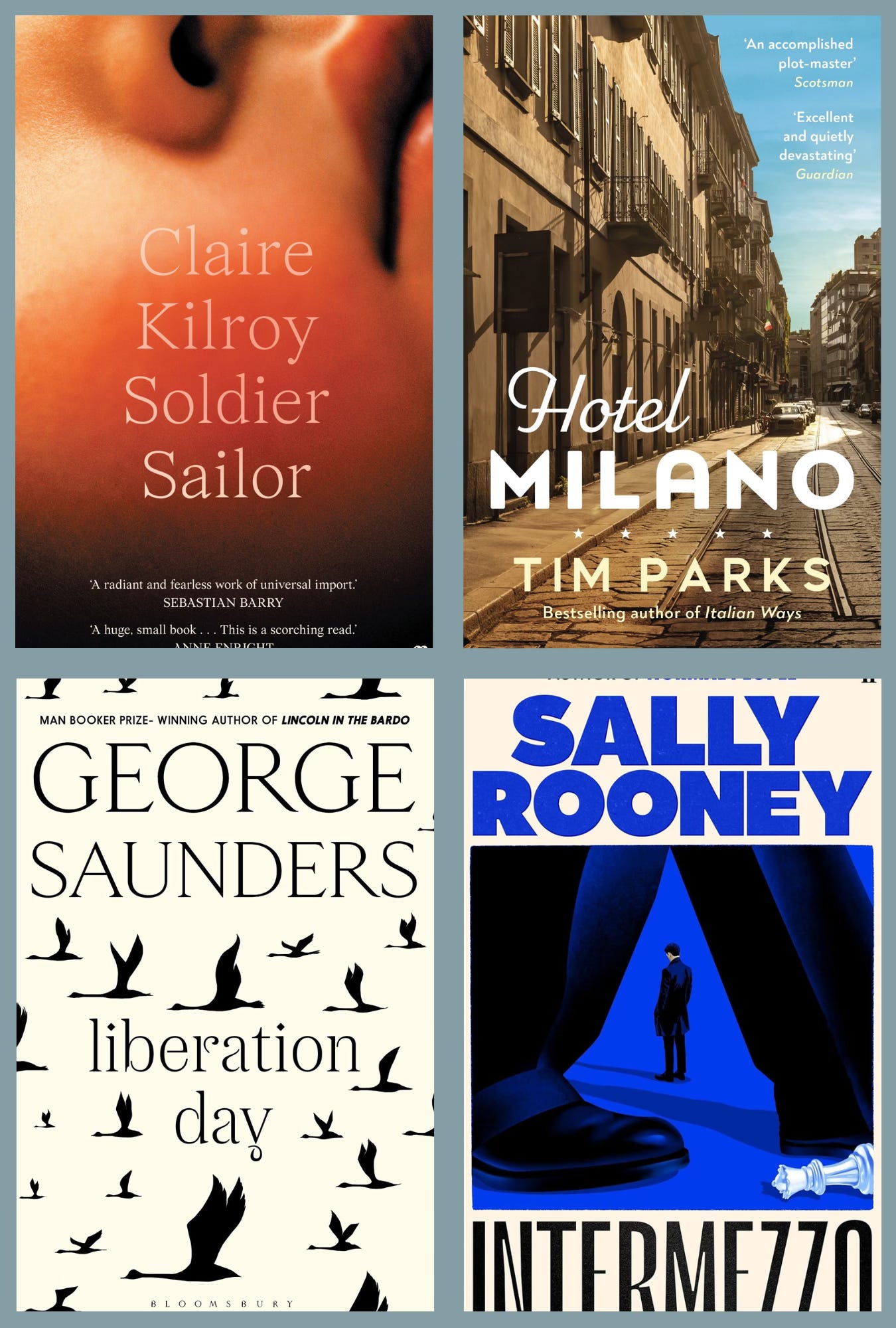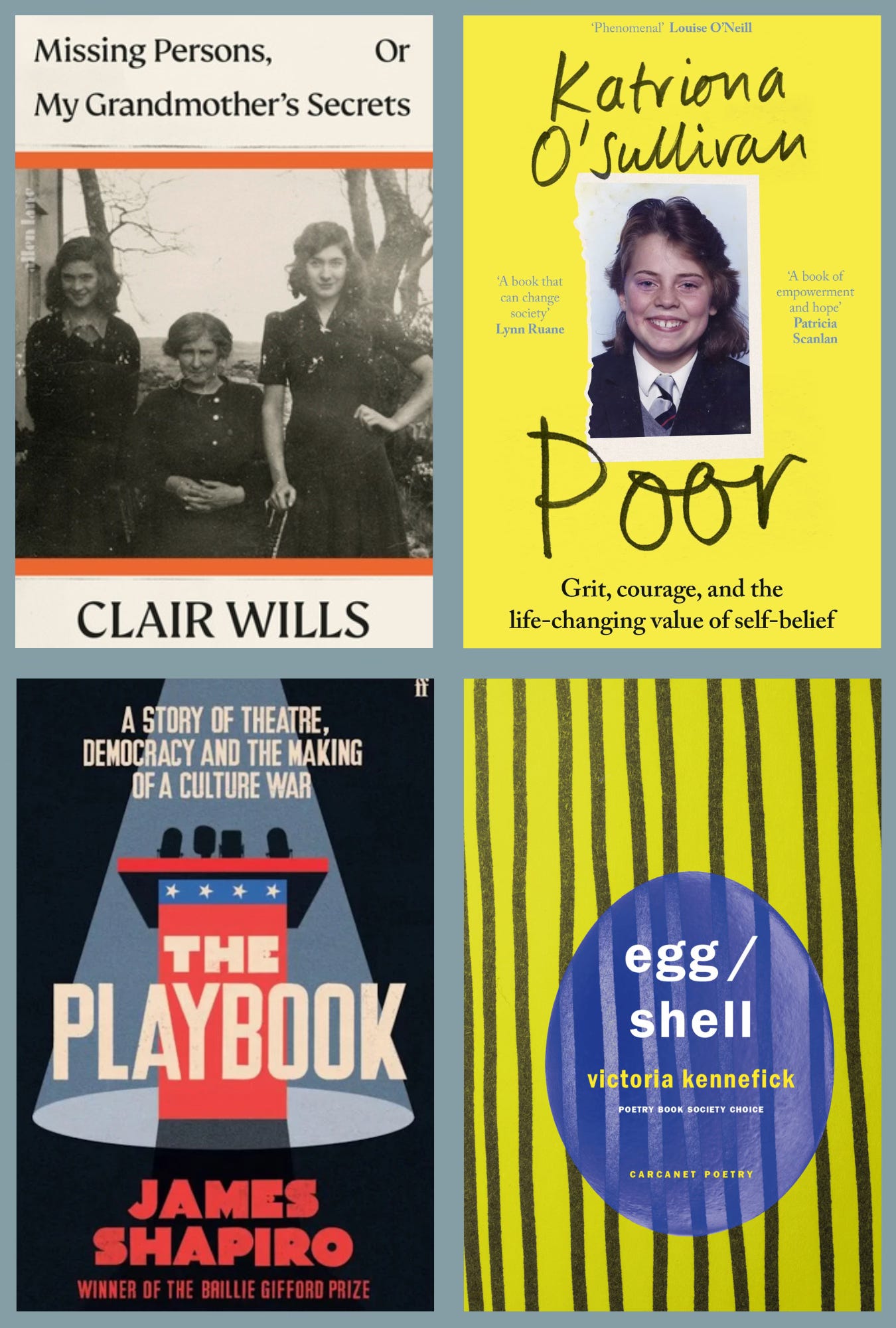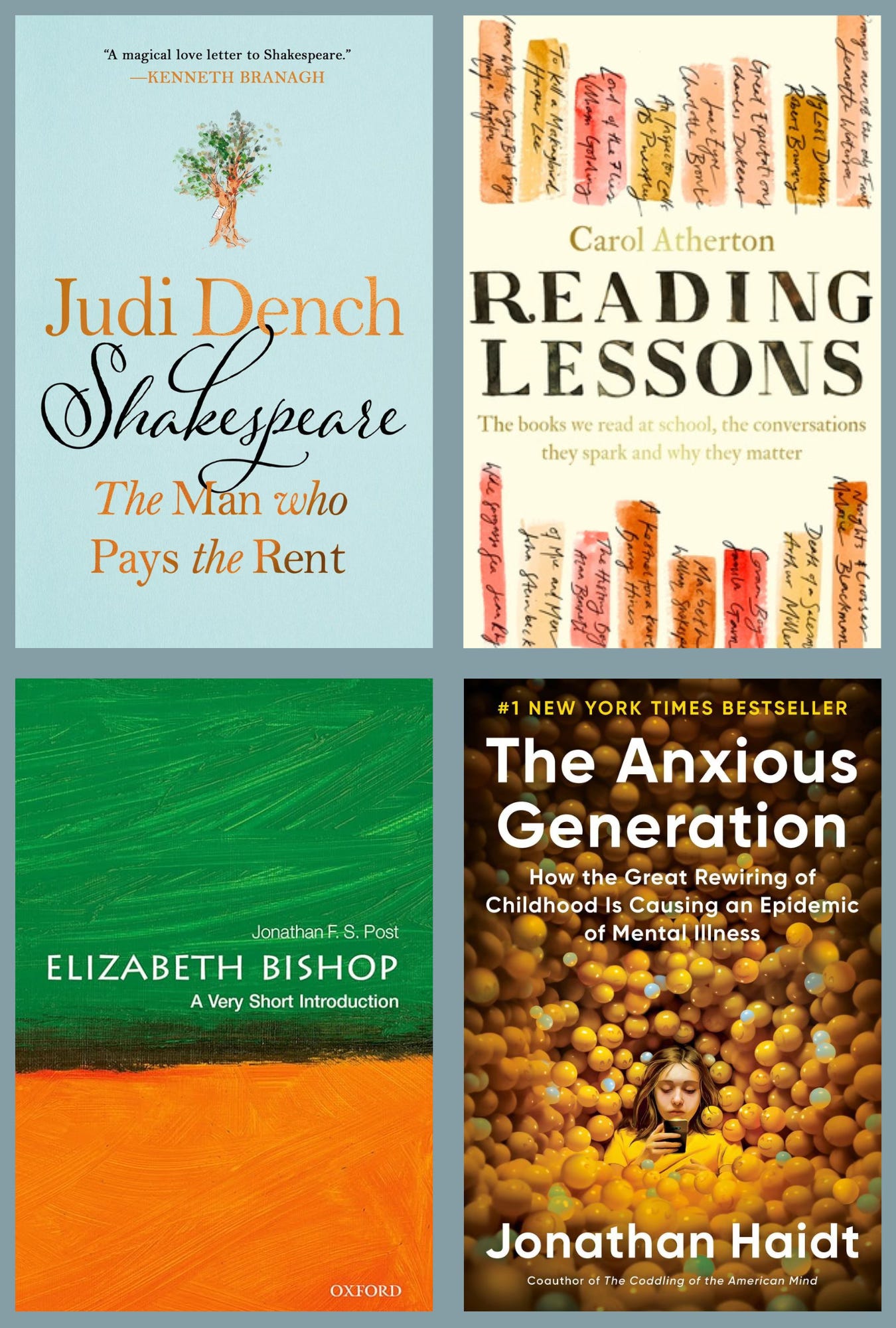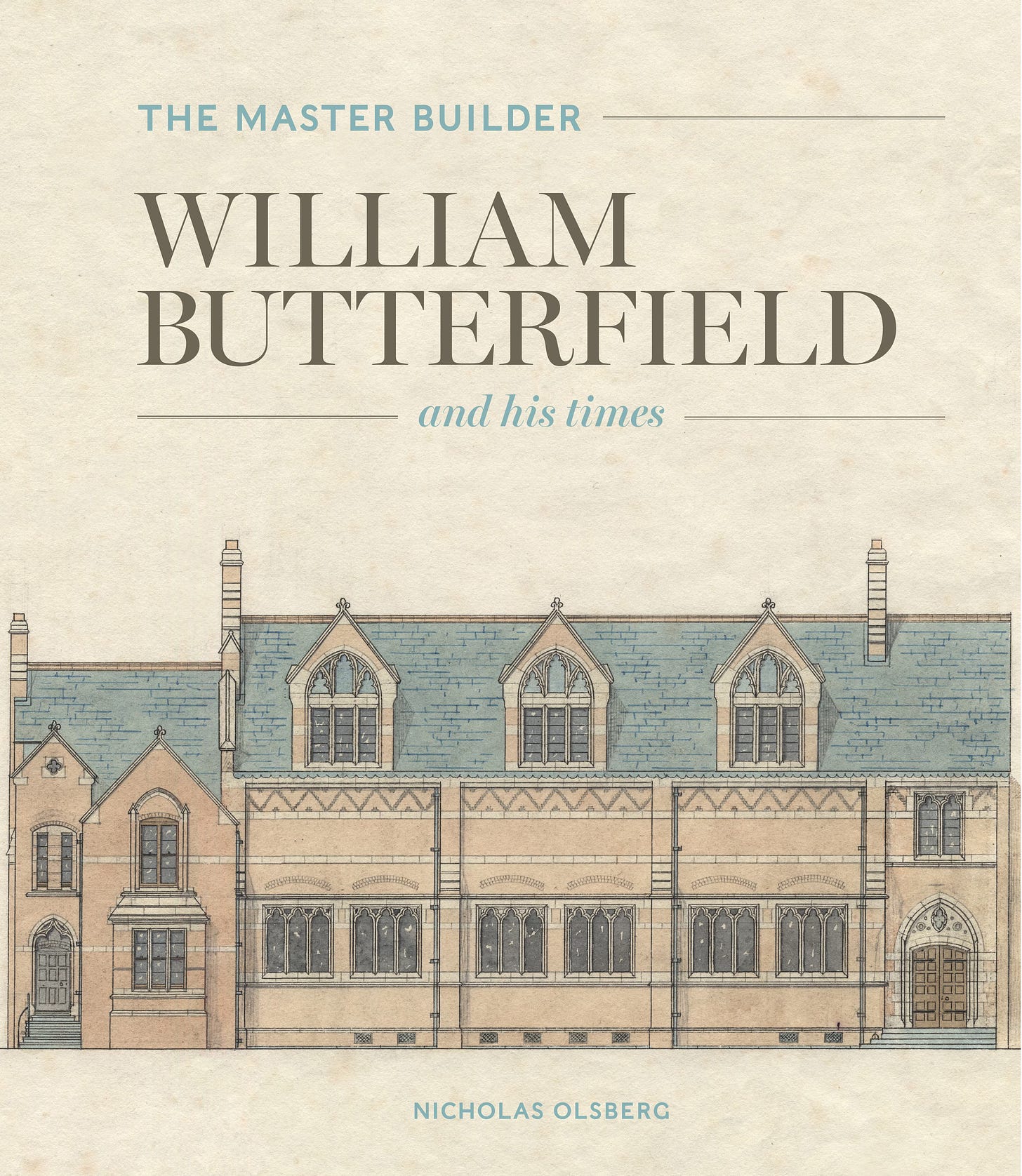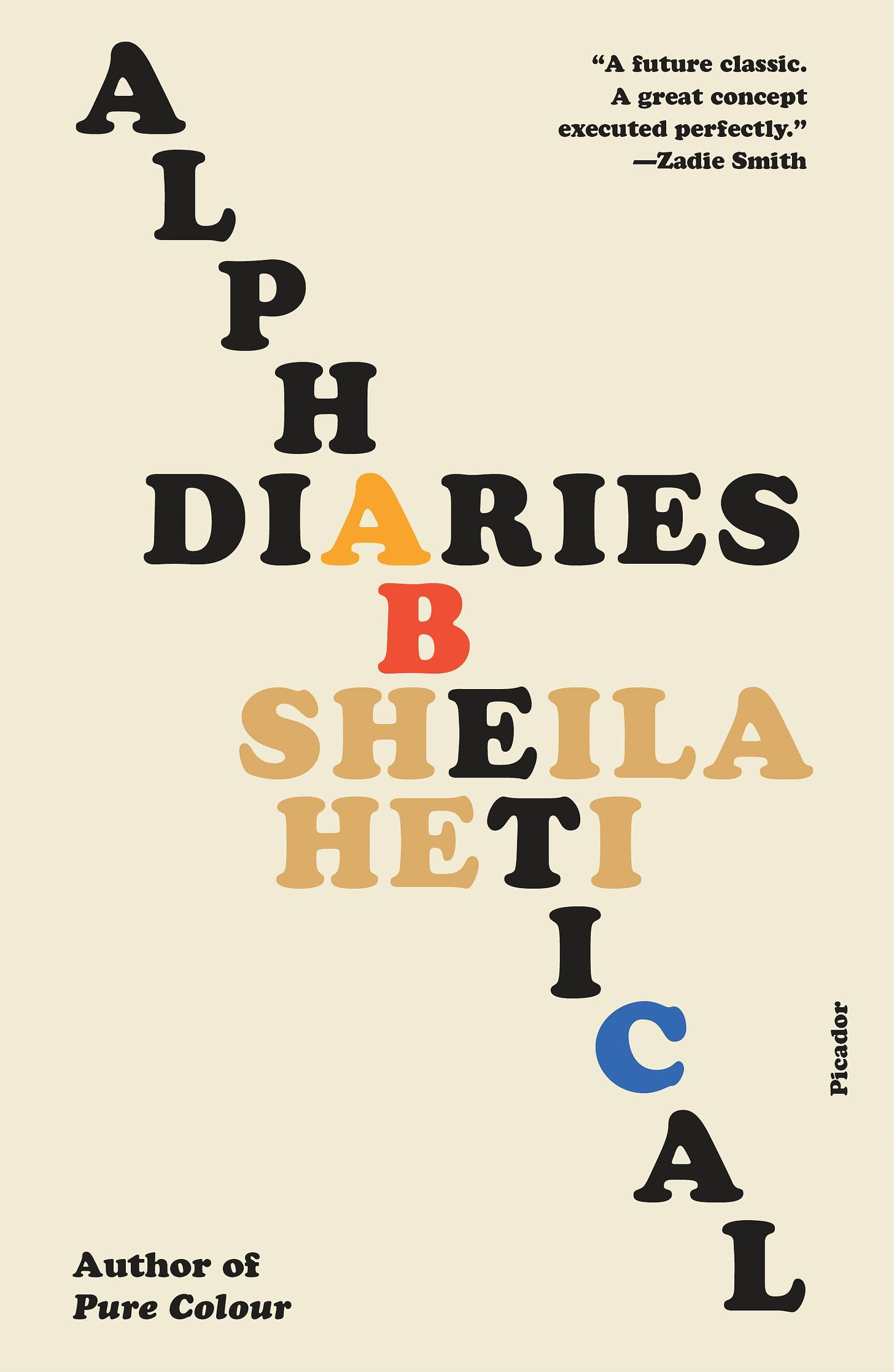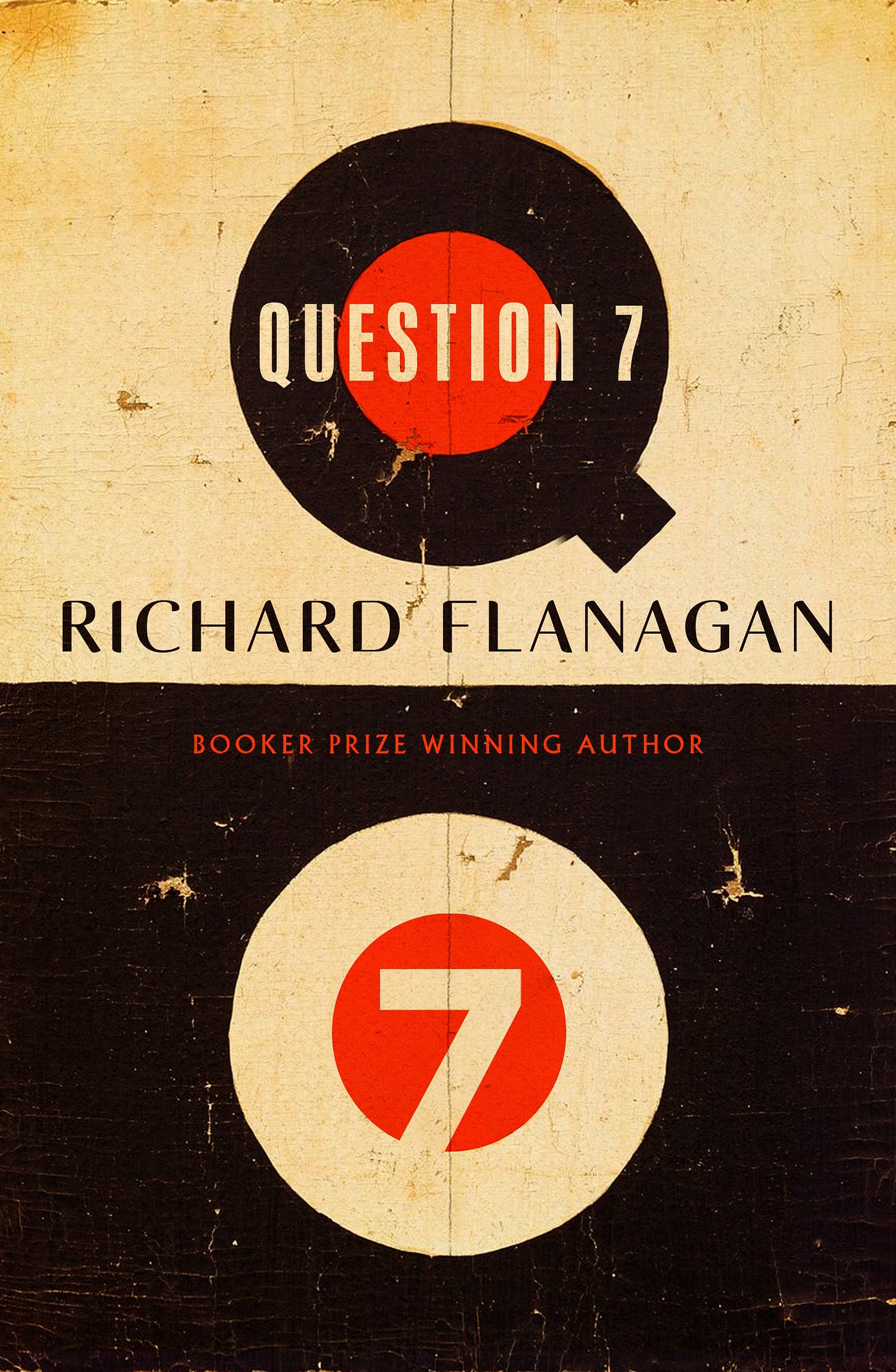179: Books of the Year, 2024
Including Sheila Heti, Richard Flanagan, Judi Dench, Claire Kilroy, Tim Parks, Carol Atherton, Victoria Kennefick, Clair Wills, James Shapiro and many more.
The final Fortnightly of 2024, the year I moved it onto Substack, which has been cheeringly successful, with many new subscribers coming from Substack connections.
This is the annual Books of the Year one, with the best of the (mostly) new books I read, though in truth nothing can compete with one of the greatest novels of all, Middlemarch by George Eliot, which I reread after many years this summer.
on ‘virtuous systems’: writing this newsletter and connecting with people around the world helps do this for me:My life is given meaning by this idea, which runs on background all the time, infusing even small actions with meaning: what I’m doing (all that I’m doing) is in service of what is ultimately, a positive worldview, in service to some larger, virtuous, system.
Many books below are reviewed on my books page.
Now for a break: back in January. Have a great reading holiday!
A Christmas present for yourself: supporting The Fortnightly and receiving The Occasional (with full access to archives). Redeem by December 31st.
Fiction
Tim Parks provided double pleasure this year, with his pandemic novel Hotel Milano and, more recently, Mr Geography, which tells the story of the affair a headmaster has with a parent that has disastrous consequences. You are always in good hands with Parks, who knows how to shape a story. George Saunders in Liberation Day also truly knows how to do the same, though this time in the short form (and ‘Love Letter’ felt like the story for our times this autumn). Sarah Gilmartin’s Service, set in a high-end Dublin restaurant, is zippy and thrilling, just the thing for the sofa when you’re exhausted by your own efforts in the kitchen.
Claire Kilroy’s Soldier Sailor presented a blistering vision of motherhood. I was touched by Jeremy Cooper’s Brian, about a man whose life is led through his visits to the cinema. Sally Rooney’s Intermezzo wasn’t perfect (what is?) but I flew through its richly-written pages. Samantha Harvey’s Orbital won the Booker Prize, slightly to my surprise, but its delicacy, and literal overview of humanity, were both interesting. Roy Goddard’s Morant was odd, compelling and unique: in a few year’s time will it have been totally forgotten, or regarded as an extraordinary achievement?
I’m never going to stop reading Donna Leon’s Brunetti series, having started decades ago with her first. Her 33rd, A Refiner’s Fire, brought us once again back to the Venice of that most sympathetic and civilised detective. Another favourite annual read, Michael Connelly of the Bosch (and other books): this time, Resurrection Walk.
Non-Fiction
James Shapiro has twice provided my book of the year (1606: Shakespeare and the Year of Lear, and Shakespeare in America). The Playbook, about the Federal Theatre Project of the 1930s, was very much of the moment as America’s culture war gathered further momentum. Clair Wills’s Missing Persons, or my Grandmother’s Secrets, was moving and fascinating in its unpicking of Ireland’s too often shame-ridden past (and helpful hinterland reading too for Claire Keegan’s Small Things Like These, my book of 2021). Katriona O’Sullivan’s Poor was bleak at times but not in the end depressing: she gave a vibrant keynote address at the October conference of the Irish National Organisation for Teachers of English.
Victoria Kennefick’s second poetry collection egg/shell was powerful, and moving, and confirmed her facility with form. Brian Klaas’s Fluke: Chance, Chaos, and Why Everything We Do Matters presented its ideas about contingency and convergence through expertly-told stories. Naomi Klein’s Doppleganger: a trip into the mirror world fascinatingly told her own story prompted by the many people who confuse her with Naomi Wolf. Daisy Christodoulou is one of our best writers about education: her fun short book about football’s Video Assistant Referee system, I Can’t Stop Thinking About VAR, had lessons about technology well beyond sport.
Last Christmas Santa brought me Benjamin Moser’s The Upside-Down World - meetings with the Dutch Masters, as I hungered for more Dutch art after my Book of 2023, Laura Cumming’s Thunderclap. Not at the level of Cumming, but still a great pleasure to spend time in the world of the Dutch Golden Age.
‘English’
A category for books I read partly for professional reasons, as an English teacher. Judi Dench’s Shakespeare: the Man Who Pays the Rent was joyous: decades of deep knowledge of the plays from the perspective of a truly great - and slightly naughty - performer. Priceless. Check out the anecdote about Gloucester’s eyeball. I was the perfect target market for Carol Atherton’s Reading Lessons: the books we read at school, the conversations they spark and why they matter. More joy: an experienced English teacher writing about the many and varied impacts books like To Kill a Mockingbird, I Know Why the Caged Bird Sings and Death of a Salesman have in the classroom. Jonathan F.S. Post’s Elizabeth Bishop in the ‘Very Short Introduction’ series was perfect: succinct and intelligent analyses of some of the poems of one of the very best twentieth century poets. And as an educator (and parent), the difference Jonathan Haidt’s The Anxiety Generation made was most important.
Special Mention
goes to Nicholas Olsberg’s stunning illustrated biography of the architect William Butterfield, and account of the many buildings he designed in the Nineteenth Century. I wrote about it.
And Book of the Year?
Well, this time I don’t know how to select just one. So the ‘title’ is shared. Here are two books I need to re-read, because I suspect their full riches will only then reveal themselves. They’re both risky books, and I understand why someone else would not like either.
Novel of the year for me was Sheila Heti’s Alphabetical Diaries (is it a novel? Who cares), which made me think about how lives are lived (including my own) like no other in these 12 months. It could have been a gimmick, but instead it is touching, funny, thought-provoking.
Non-fiction book of the year came late for me: Richard Flanagan’s Question 7 is unclassifiable. A kind of memoir, but so much more. It drew together a lot of threads, some of which echoed in my own life. Like Heti’s book, it makes you think deeply about yourself.
Et Cetera
My King Lear scene by scene podcast series is coming to a conclusion: the final episode, on the final scene, ‘drops’ next week. And there will be a downloadable booklet of all the transcripts. Episode 11 arrived this week, on three relatively quiet scenes before the final cataclysm. The full list).
Monday evening, 8.30pm to 9.30pm, December 16th: #edchatie continues its re-booting on Bluesky, with a session hosted by me on ‘Professional development for teachers in Ireland: opportunities and problems?’ In the New Year Humphrey Jones will host on January 13th with ‘How can Ireland address its teacher recruitment and retention crisis?’ and January 27th will see John Hurley corral views on the current hot topic, ‘AI in Irish education.’ All you need to join in is a Bluesky account. Looking for more hosts - just reply to this.
Recent cinema: Anora was wild, Conclave was enjoyable (credulity-suspension needed for the ending). But my film of the year was an Irish production which is surely a masterpiece, Pat Collins’s adaptation of John McGahern’s novel That They May Face the Rising Sun.
Helen Shaw on Kenneth Branagh’s past in Shakespeare on film. I saw Much Ado and The Winter’s Tale (with John Nettles) in Dublin’s Gaiety Theatre a long while back in his Renaissance Theatre company productions. Shaw on the subsequent film version:
In Branagh’s hands, Much Ado was joyful and accessible and intoxicatingly romantic—I think it’s the best film yet made of any Shakespeare comedy.
- : Audiobooks and Written Books are Different (thank god!):
I tend to prefer print books over audio ones partly as a consequence of my own flawed attention span. When listening to an audiobook or podcast, I’ll often realize that I’ve let my attention wander and missed a few sentences, sometimes more. Then I have to decide whether it’s worthwhile to try and rewind to the place where my attention drifted, which requires a much more conscious effort than it does when reading a print book.
The best book covers (American) from the NYT: gift link. Includes Alphabetical Diaries, above. Love Junkie is funny, Knife makes you shudder.
